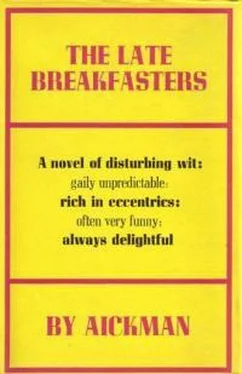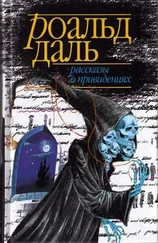‘Good night, Edwin,’ said Mrs Hatch, and he retired downstairs, having said Good-night to the girls in a tone which at once commended their charitable helpfulness and conveyed his own deep regard for them.
The bedroom was stuffed with clothes and lined with photographs, many of them signed ones of celebrities, with pleasant words of gratitude adjoined. A real fire burned in the grate, making the room close (the Dining Room and Drawing Room had been impalpably warmed by further space heaters). The single bed was white and simple. In the corner of the room was a large green safe.
Pamela’s assistance proved fairly useless. Not only had she become silent once more, but she more than once knocked something over, and even tore Mrs Hatch’s slip while trying to extricate her from the garment. Not unreasonably, Pamela seemed to fear the effect of the heat upon her complexion, and carefully kept away from the large fire. Griselda could have wished for the presence of Louise, that expert in putting on clothes: but in the end, and despite Pamela, inserted Mrs Hatch, masterful to the last, into her pyjamas, and was rubbing her leg as she lay sprawled on the bed. Pamela was now yawning ostentatiously.
Griselda rubbed diligently for what seemed at least ten minutes.
‘That’ll do,’ suddenly said Mrs Hatch, and began to roll down her pyjama leg. ‘But I may want you to do it again tomorrow.’
‘I shall be dancing,’ said Griselda, almost maliciously. The exertion and the rubbing against the bed had not improved her beautiful fragile dress.
‘So you will. But I expect you’ll be back for tea. People usually are. Tea at Beams is a daily event, you know. You can massage me, if necessary, between tea and dinner. I usually lie down before a dance anyway.’
‘I’m not really a masseuse, you know. It’s quite easy to do the wrong thing, I believe.’
‘You won’t do the wrong thing. Would you please give me my book? Over there on the banker.’
In the corner of the room was a big cabinet, with long shallow drawers.
Griselda brought the book. It was entitled ‘Warlock on Comparative Agriculture.’ Mrs Hatch was hanging from the other side of the bed and opening the door of the commode, apparently to confirm the presence of its contents. It was a distance to stretch and Mrs Hatch, at the very end of her reach, had to shut the door with a slam.
‘Thank you, my dear Griselda, for all your help.’
Griselda smiled.
Mrs Hatch opened the book at page 601. Griselda was about to say good-night and depart, when Mrs Hatch looked up.
‘Pamela is very pretty isn’t she?’
Griselda started. It was an extraordinary thing but she had not noticed Pamela’s departure.
‘Where is Pamela?’ Griselda felt she must be very tired to be so unobservant.
‘She slipped out while you were kindly attending to my injury. Never mind. She’s in the room next to yours. The Livingstone Room, we call it.’
A big brass clock above the large fire struck two. Griselda was surprised it was not later.
IV
Trouble began almost as soon as Griselda was back in her bedroom.
The house, formerly so quiet, not unlike a specialist’s waiting-room, now seemed full of noises. Nor was it only the noise of Pamela snoring like an ox and perfectly audible through the substantial wall, or that of some unknown making periodical clattering trips down a distant passage (could it be Austin Barnes? Griselda wondered). There were constant small disturbances which seemed in her own room, or at least only just outside the door: creaks and jars, of course; but also sudden sussurations, in among the window curtains, near the cabinet containing the shower, or under the bed. To Griselda, overtired as the incident in Mrs Hatch’s room had suggested she must be, it was almost as if some small animal were loose in the apartment. Rats and mice seemed extremely improbable in such a carefully ordered house. Griselda, used to living out of London, wondered whether some small creature could have entered during the day. She had removed her charming dress and was vaguely endeavouring to fluff up the organdie, flattened and pulled while she had worked on her hostess’s leg: it was certainly true that the garment no longer looked new, as it had looked so far every time she had worn it. Laying down the dress, she began to investigate the room, half-heartedly examining corners and peering into the angles of the ceiling, not very well illuminated by the conceiled lighting. Even a small bird was not out of the question, she thought. As the idea came to her, a screech owl cried very loudly outside her window. Griselda found that she was shivering, slightly clad as she was, and away from the excessive heat of Mrs Hatch’s bedroom. She drew her dressing-gown from the wardrobe and put it on. It had once been the colour of dying peonies, but Griselda had owned it since her last disastrous year at school.
Griselda hung up her dress, assumed her pyjamas, and faithfully removed her make-up. She cleaned her teeth, carefully and thoroughly as always, for she regarded her teeth as attractive. Then, still shivering excessively, she drew back the curtains, opened the window at top and bottom, and leaped from her familiar dressing-gown into her unfamiliar bed. Outside there was a misty moon, predicting, as usual, a change for the worse in the weather. Inside, the little noises had not abated, but Griselda resolved to ignore them.
The noises were difficult to define. Nor was it easy to know whether or not any particular one of them was a new noise. One of the worst, and surely a new one, however, was like that of voices muttering. It came and went like a radio set out of order and turned very low; with long pauses of silence. Another was like long nails destructively scratching at smooth hard paintwork. Once a silent bird struck the window very hard, so that Griselda felt surer than ever that another had flown in during the day and was now in the room with her, probably lying exhausted behind a piece of furniture. The sussurating noise was still audible from time to time: it rustled for seconds or minutes in one place, then was long silent before starting elswhere.
Griselda slept intermittently until she reached a condition of uncertainty whether she slept or waked. She continued disagreeably cold until she was merely shivering without any distinctive consciousness of being cold at all. At one moment when she was nearer waking than sleeping, she heard the sound of tears, a high-pitched sobbing, somewhat petulant it seemed, but distant and subdued. It was possible, she thought, that Pamela wept in her sleep. Before long the noise, which from the time she first heard it had been growing less and less, died away.
Several times during the later part of the night Griselda woke from nightmare; but not a detail could she remember even in the first moments of consciousness. She might have been dreaming of things so horrible that the mechanism of repression was forced to clamp down once more on her consciousness in the very instant of waking. But the nightmare had each time seized and penetrated her whole body and mind; it was as if she had been twisted into another identity, mysterious and horrible, which, when she returned, there could be no question of remembering since the two beings had no capacity for memory in common. She shuddered to reflect that this second identity, totally unreachable lay always behind her face and beneath her thoughts. The strain of having perpetually to maintain the ascendancy over it weighed upon her. Now that she no longer loved her Mother, perhaps it was getting possession of her mind and affecting her gait. In the end none the less, she returned to slumber.
The worst occurrence of the night was perfectly natural and commonplace. Griselda woke to hear a dog howling. It howled on an unusually shrill whining note. It continued howling for a very long time; for long after Griselda was fully and entirely awake. She lay with her back towards the window listening to the distressing sound and unavailingly searching her memory for a dog in the house. In the end, she was almost reduced to leaving her bed and investigating; but desisted when she saw that the dawn was near. This circumstance, she felt, might be related in some way to the unknown dog’s behaviour; moreover, she had once more started to shiver and shunned the silent chill of the large room. She was uncertain whether the dog had ceased to give tongue before she once more fell asleep.
Читать дальше




![Роберт Эйкман - Холодная рука в моей руке [сборник litres]](/books/438747/robert-ejkman-holodnaya-ruka-v-moej-ruke-sbornik-l-thumb.webp)





